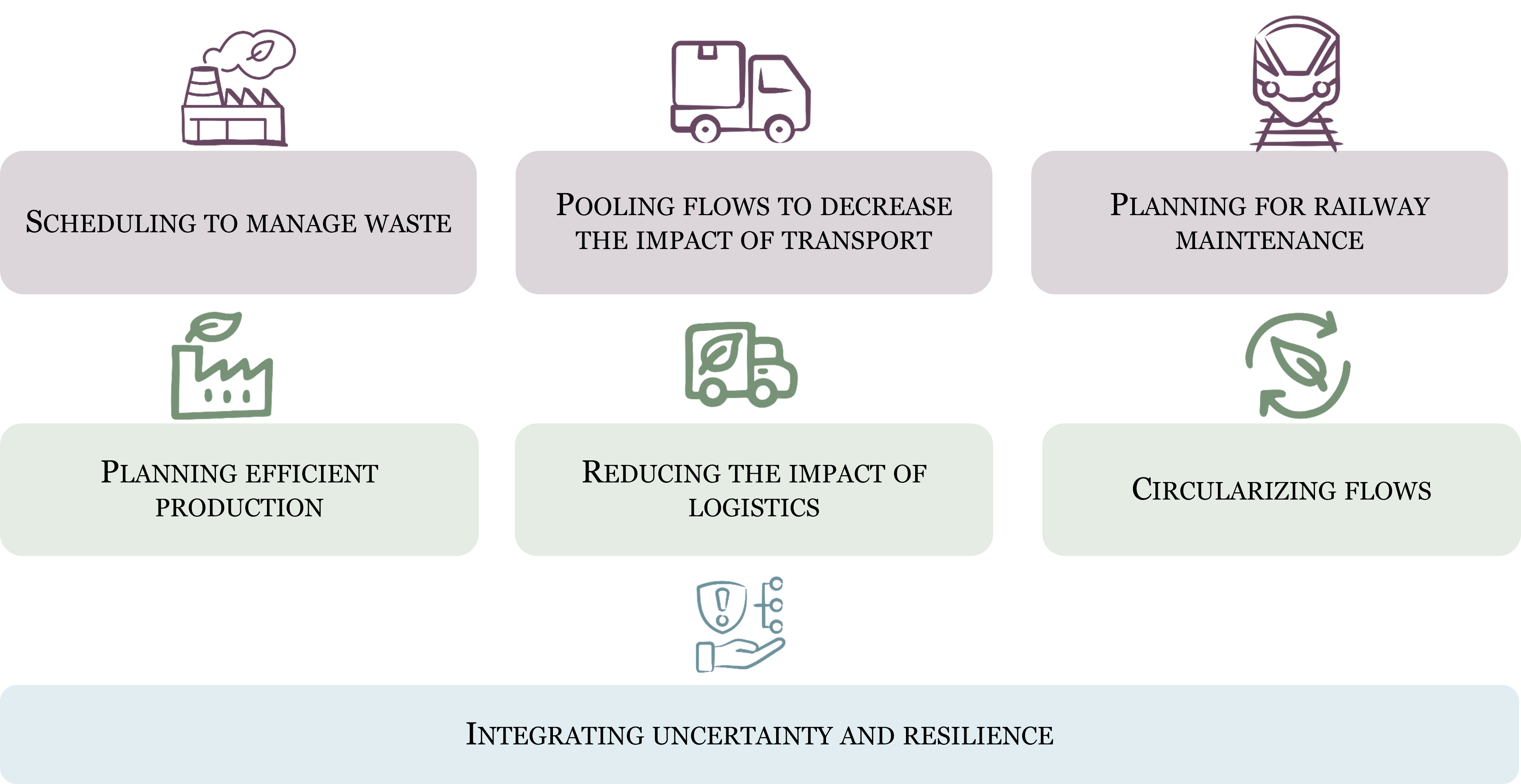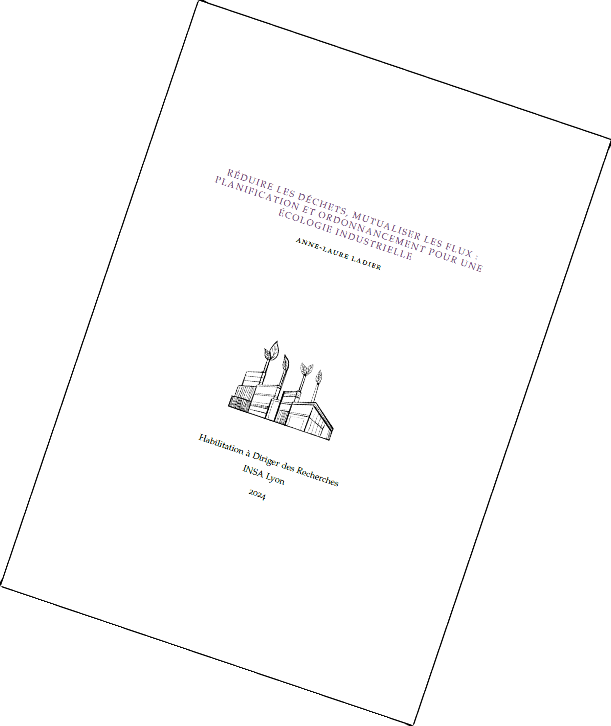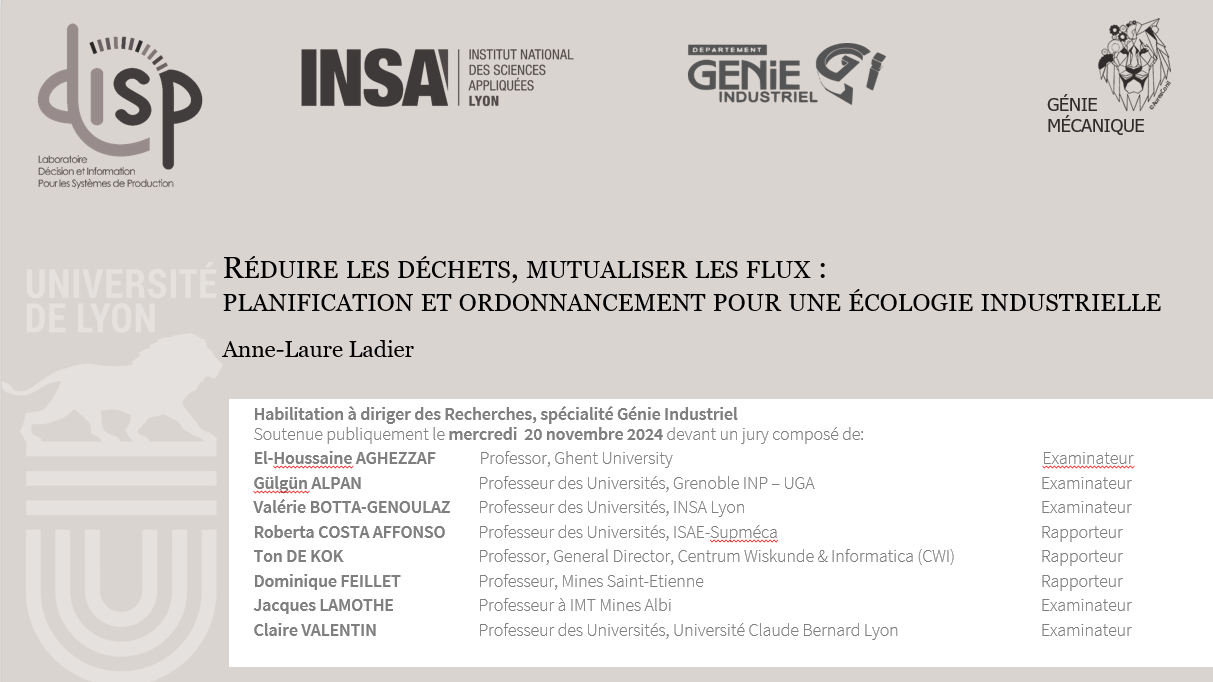Reducing waste, pooling flows: planning and scheduling for an industrial ecology.
Abstract
Three families of decision support problems are addressed in different industrial application areas.
The first deals with planning and scheduling for waste management, aiming to determine an efficient organization under resource constraints. The work focuses on hazardous industrial waste and waste from nuclear decommissioning.
The second family of problems is the pooling of logistics flows to reduce the impact of transportation. Optimizing transshipment and reducing distances traveled in vehicle rounds are problems that seek efficient organization in space by exploiting network structures. The work includes the automation of transshipment platforms, taking into account their energy consumption, and the efficiency of order picking in traditional platforms with little automation. In addition, research is being conducted on the uncertainty of demands and travel times in urban freight transport, within the inventory routing problem and with heterogeneous vehicle fleets in terms of energy vectors and capacities.
Finally, railway maintenance problems link the two previous areas by determining a time organization under resource constraints, while exploiting a network structure. The objective is to find a temporal organization under resource constraints by exploiting the network structure. Decision support models are proposed to organize the maintenance of ballast and vegetation along the tracks. This maintenance work, carried out by vehicles passing over the tracks, must be planned taking into account track availability.
The problems studied share common characteristics, notably the multi-criteria aspect of the decision and uncertainty management. These aspects are important both in production scheduling to generate less hazardous industrial waste and in railway maintenance planning, both of which are linked to environmental issues. Integrating life cycle analysis makes it possible to determine which scheduling problems can reduce waste and scale heterogeneous vehicle fleets for urban delivery.
The solution approaches used include linear programming, integer linear programming, optimization-simulation coupling, the development of dedicated matheuristics, and metaheuristics.
Jury members
- M. El-Houssaine AGHEZZAF - Professor - Ghent University
- Mme Gülgün ALPAN - Professeur des Universités Grenoble INP – UGA
- Mme Valérie BOTTA-GENOULAZ - Professeur des Universités - INSA Lyon
- Mme Roberta COSTA AFFONSO - Professeur des Universités - ISAE-Supméca
- M. Ton DE KOK - Professor - Centrum Wiskunde & Informatica
- M. Dominique FEILLET - Professeur - Mines Saint-Etienne, LIMOS
- M. Jacques LAMOTHE - Professeur - IMT Mines Albi, Centre Génie Industriel
- Mme Claire VALENTIN - Professeur des Universités - Université Claude Bernard Lyon 1
Addressed problems and perspectives




